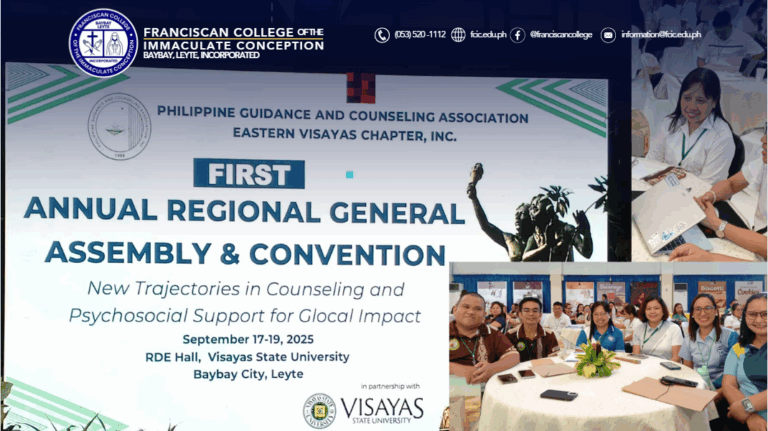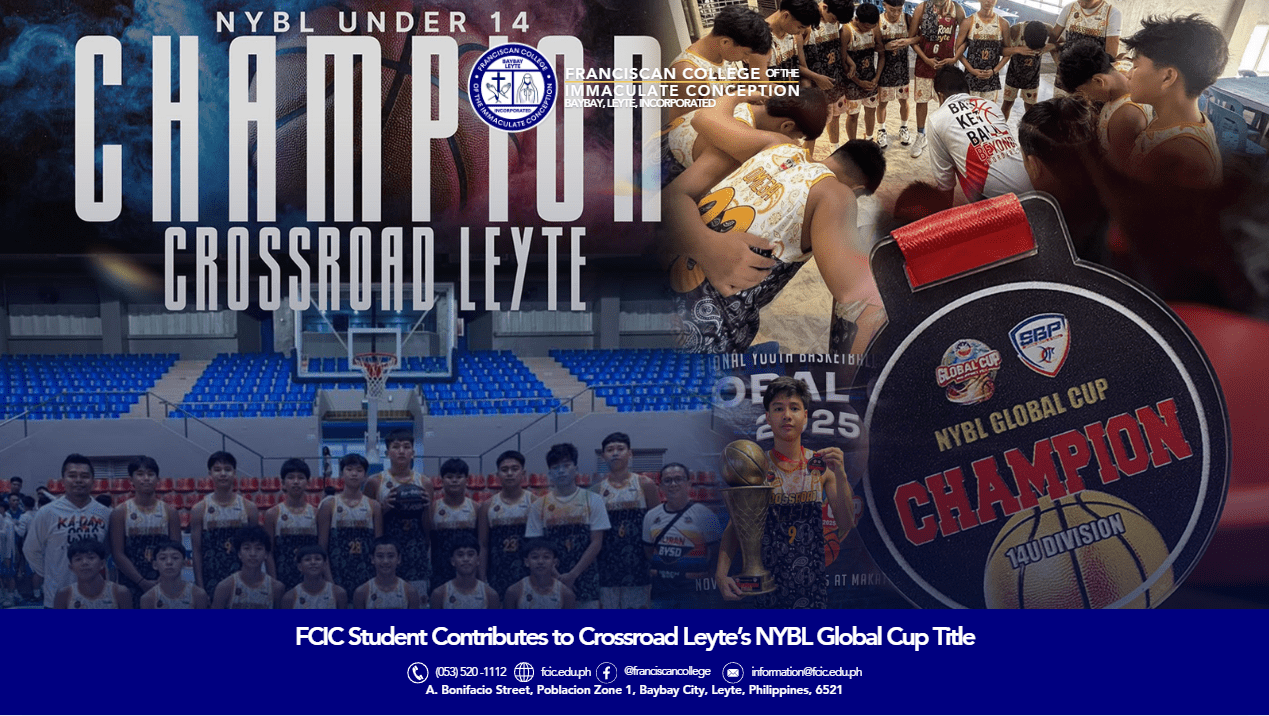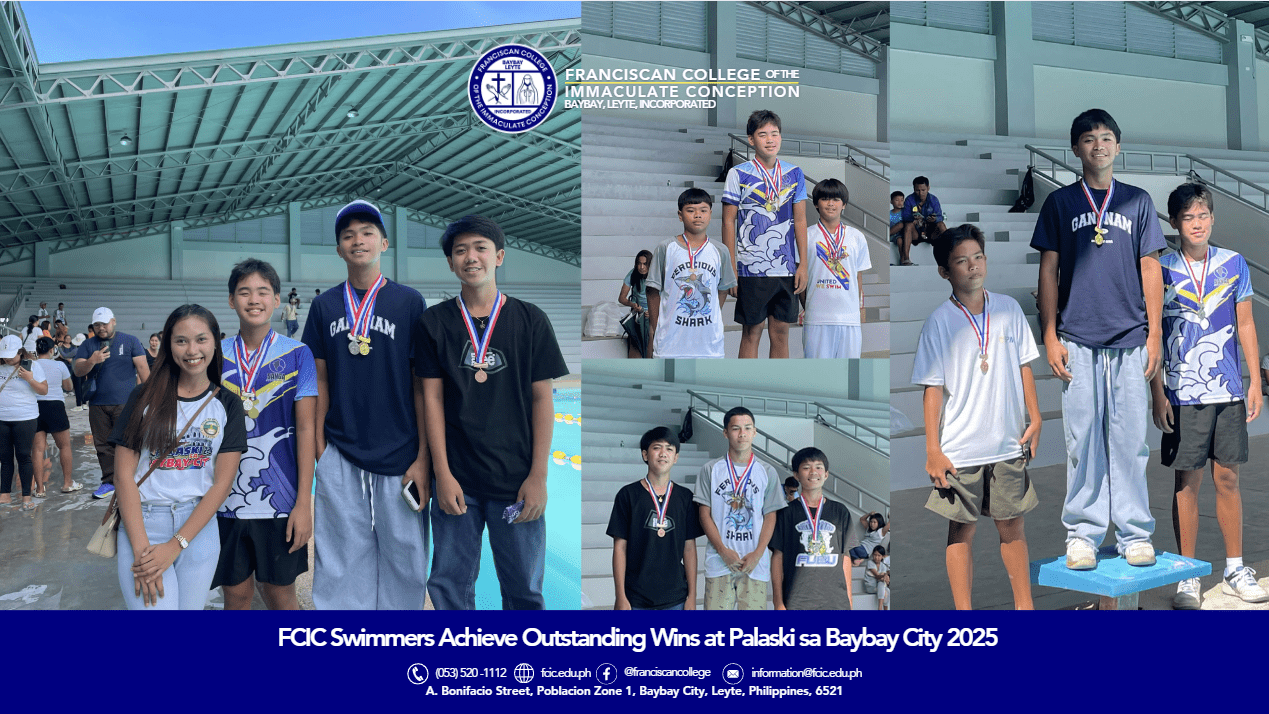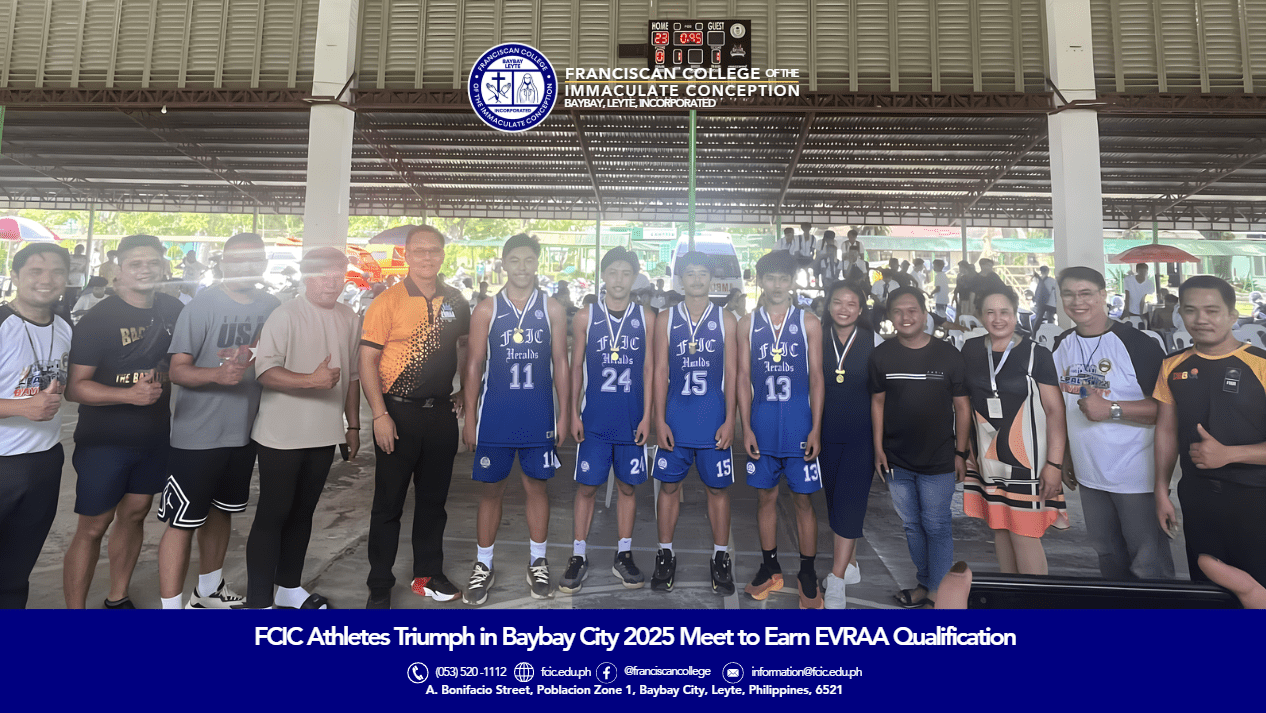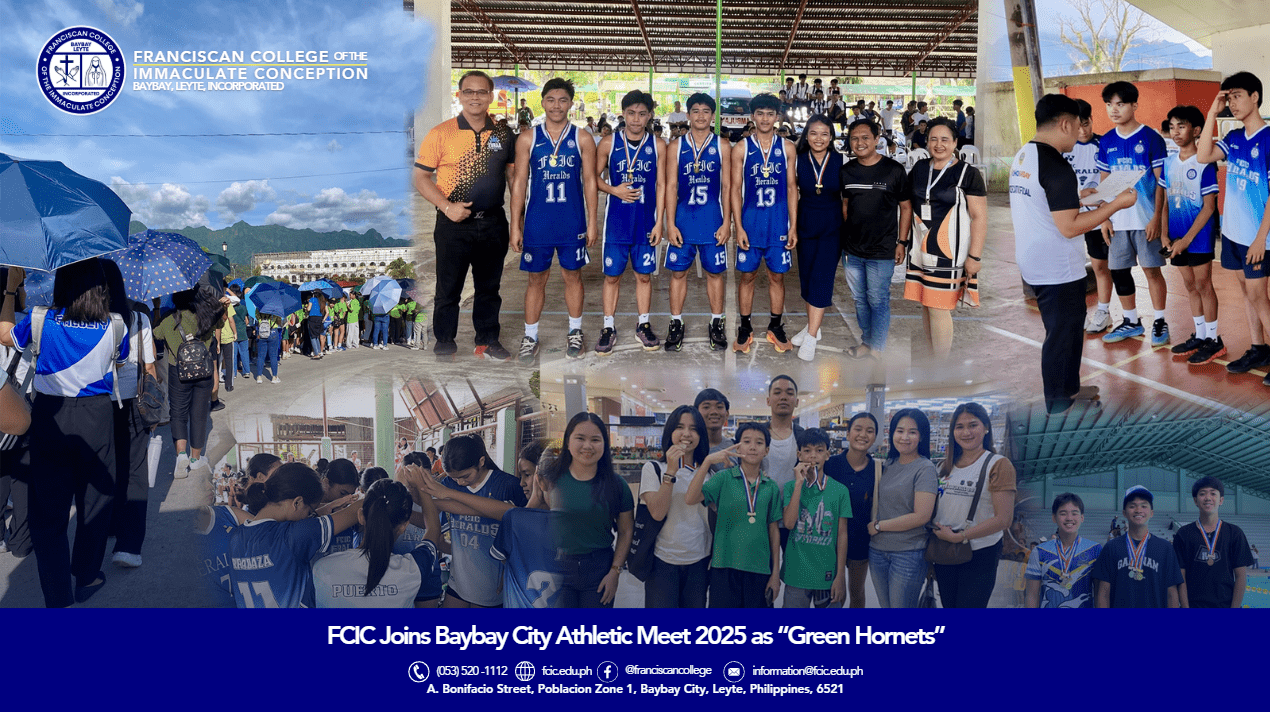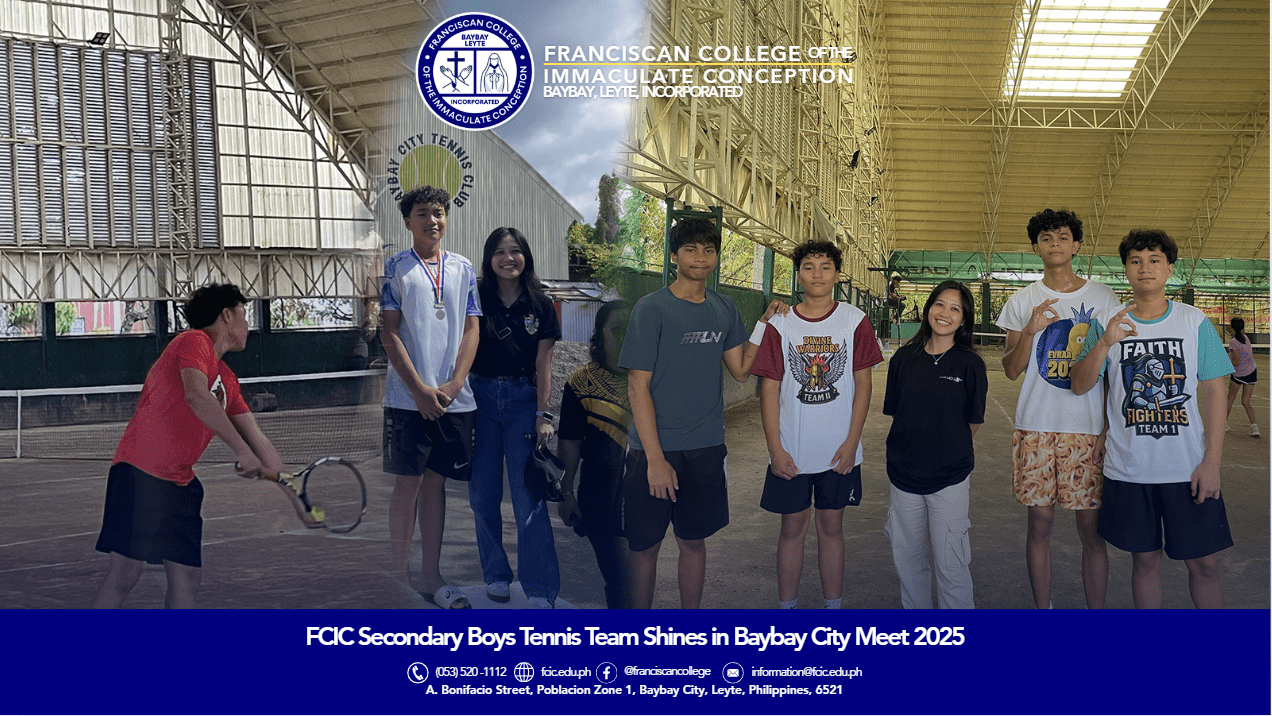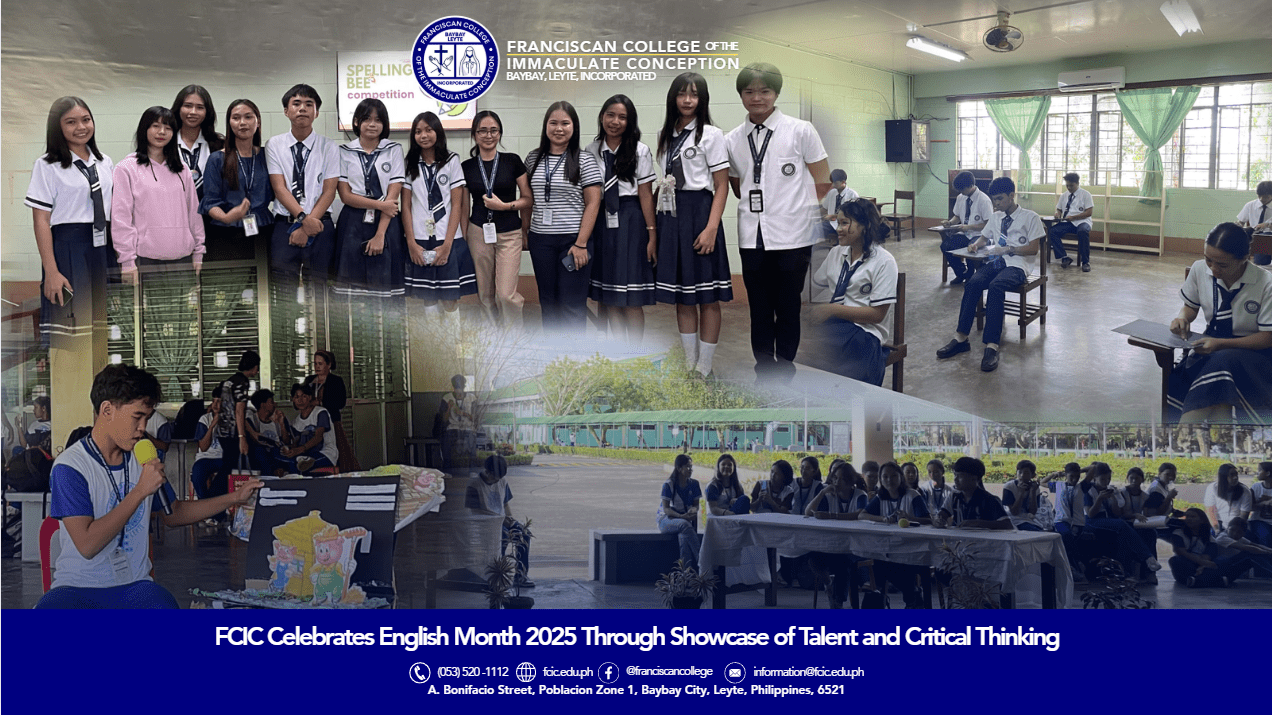The Philippine Guidance and Counseling Association Eastern Visayas Region Inc. held its First Annual Regional General Assembly & Convention last September 17-19, 2025 at the Visayas State University RDE Hall with the theme “Trajectories in Counseling & Psychosocial Support for Glocal Impact”
The First Annual Regional General Assembly & Convention was participated by Registered Guidance Counselors, Guidance & Career Advocates, Psychometricians, Social Workers, and Licensed Professional Teachers coming from the different cities, and municipalities in the Easter Visayas Region.
Among the participants of the convention are the Registered Guidance Counselors who earned their MAED Guidance & Counseling Program at FCIC. Seeing their beaming smiles, and ardent looks has made FCIC proud on what the MAED Guidance & Counseling program in FCIC has produced, a dynamic, and engaged professionals in the field of counseling.
Ensuring a wealth of knowledge among the participants, the convention was facilitated by different renowned keynote speakers including one of the pillars of the association headed by Hon. Dr.Luzviminda S. Guzman, RGC, the Chair, PRB for Guidance & Counseling Professional Regulation Commission. She was joined by other members of the team in the persons of Dr. Jaclyn Marie Cauyan,RGC, Dr. Gina Lamzon,LPT,RPm, RGC, & Dr. Sheila Marie G. Hocson, RPm,RGC, RPsy. Additional to the team of Keynote Speakers were Gpanasekhar Raju Singaraju, a Physician from the Republic of India, at the same time a Software Engineer from Singapore, and Dr. Argel B. Masanda, RPm, RGC, RPsy, a Full Professor at National University.
Topics aligned with New Trajectories in Counseling and Psychosocial Support for Global and Local Impact were tackled during the 3-day convention. The field of guidance and counseling and psychosocial support undergoes transformative shifts as the world navigates rapid technological change, social complexities, and global health challenges. These new trajectories aim to ensure a more inclusive, accessible, and future-ready mental health services addressing both global demands and local realities.
1. Mental Health Legislations for Schools
Educational institutions are now recognized as crucial entry points for early intervention in mental health. Progressive legislation mandates the integration of counselling services within school systems. Republic Act No. 12080 December 6, 2024, an ACT that strengthen the promotion, and delivery of mental Health Services in the Basic Education prescribing the creation of new plantilla positions with appropriated funds. Hiring and deploying school’s division counselors, school counselors, and school counselor associates as one of the policies prioritize student mental well-being, requiring trained mental health professionals in schools, implementing anti-bullying programs, and embedding socio-emotional learning in curricula. These legal frameworks are vital for safeguarding young minds and ensuring continuity of care across educational stages.
Hon. Dr. Luzviminda S. Guzman, RGC
2. Access and Inclusion to Digital Wellness
The digital divide remains a critical challenge, but strides are being made to promote equitable access to digital mental health tools. From teletherapy platforms to AI-driven self-help apps, the push for digital wellness inclusion centers on affordability, cultural relevance, and accessibility for individuals with disabilities. Programs focusing on digital literacy also empower communities to navigate online wellness resources safely and effectively.
Dr. Jaclyn Marie Cauyan,RGC
3. Cultivating Transpersonal well-being by tapping the quantum field
The concept of cultivating transpersonal well-being by tapping the quantum field refers to practices and paradigms that aim to enhance human flourishing by accessing and integrating dimensions of consciousness beyond the individual ego (the “transpersonal”), using metaphors and insights from quantum physics (“quantum field”).
Dr. Gina Lamzon,LPT,RPm, RGC
4. Local Community and the Carer’s Global Identity
The role of community-based carers — teachers, social workers, volunteers — is evolving. These local actors increasingly operate with a global identity, informed by shared best practices, global mental health standards, and online training opportunities. This interconnectedness bridges the local-global gap, allowing community carers to implement localized interventions with globally-informed competencies.
Dr. Sheila Marie G. Hocson, RPm,RGC, RPsy
5. 21st Century Competencies in Counselling and Psychosocial Support
Guidance Counselors today must develop a diverse skill set: digital literacy, cultural competence, trauma-informed care, collaboration and interprofessionalism, evidence-base practice, self-care and burnout. These 21st-century competencies prepare professionals to respond to emerging mental health issues, such as climate anxiety, identity stress, and social media-related pressures, while leveraging technology for more effective intervention.
Hon. Dr.Luzviminda S. Guzman, RGC
6. Virtual Space Navigation for Mental Health Services Delivery
The shift to virtual spaces has revolutionized mental health service delivery. However, it also demands new protocols in ethical telepractice, online rapport building, and digital data protection. Providers are now exploring hybrid models that combine face-to-face and virtual counselling, increasing reach while maintaining therapeutic quality.
Gpanasekhar Raju Singaraju
7. Systemic Whole Community Approach in Mental Health
Beyond individual interventions, there is a growing movement toward a systemic, whole-community approach. This model involves schools, families, local government, businesses, and civil society working together to co-create a mentally healthy environment. Strategies include community mental health mapping, public education campaigns, and inter-agency collaboration — recognizing that well-being is a shared responsibility.
Dr. Argel B. Masanda, RPm, RGC, RPsy
8. Resiliency and Well-being Programs for a Future-Proof Nation
To prepare nations for future challenges from pandemics to climate change, resilience-building is key. National mental health strategies now include well-being programs that develop psychological flexibility, emotional intelligence, and social cohesion. These initiatives are often integrated into disaster preparedness plans and public health campaigns, ensuring that mental resilience is a core pillar of national development.
Dr. Sheila Marie G. Hocson, RPm,RGC, RPsy
Conclusion
The future of counseling and psychosocial support lies in innovation, inclusivity, and integration. By aligning local efforts with global standards, investing in digital equity, and fostering holistic approaches, we can build mentally resilient societies prepared to face the challenges of tomorrow. AI can supplement counseling strategies but will never replace Counselors and other mental health professionals. Human interactions and its elements are still the core of the helping relationship.
By Christine Cardoza

